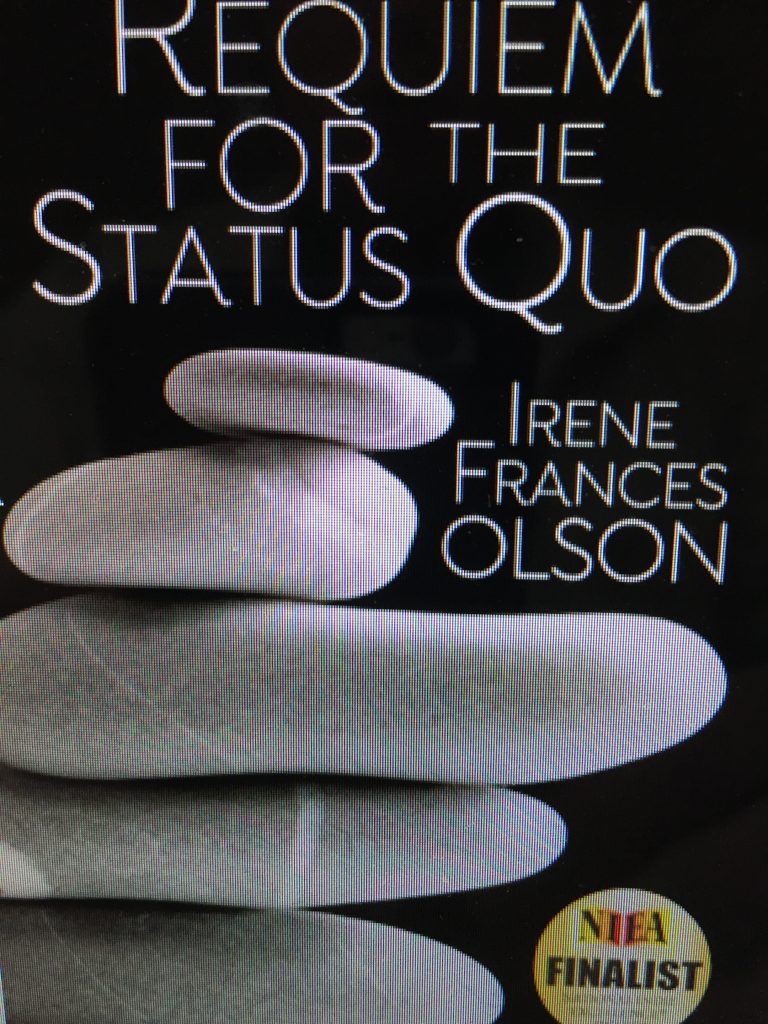Tag Archives: fiction
2020: Reviewing a Year of Reading
Book Review: The Doctor of Aleppo
Book Review: The Ghost in the House
Interview with Irene Frances Olson, Author of REQUIEM FOR THE STATUS QUO
I had the pleasure of reading REQUIEM FOR THE STATUS QUO, a novel about a caretaker’s experiences with an Alzheimer’s patient, the narrator’s own father, in the Seattle, Washington area. The author, Irene Frances Olson, cared for her father, who suffered from the same disease. She currently participates in various organizations dedicated to Alzheimer’s patients and their family and friends.
What kinds of novels do you like to read? Who are your favorite authors? Any nonfiction?
I always read Fiction and Non-fiction simultaneously. Lately I have been shying away from any Fiction themes that are too intense, violent, or suspenseful as I have enough intensity in my life without having my leisure time fall into that category. With that said, however, I will most likely return to such themes when/if the world calms down a bit.
Write for Your Life! How Coranavirus Could Improve Your Writing and Life
And I don’t just mean because you probably have more free time now, although there is that, of course. I can think of a number of other advantages of the enforced retreat we’re all taking, some practical, some emotional, and some (dare I say it?) spiritual.
First, you’re probably
less distracted. News on all topics apart from the virus is drying up. No more
endless debates about issues which enrage you! No need to respond to countless
messages in your social media feeds. And it’s much quieter. Last night I
stepped out of my house and couldn’t hear a single car. I live in a rural area
of Portugal, but even so, the silence was otherworldly. I called my wife
outside and the whole countryside seemed still and peaceful.
THE FIVE WISHES OF MR. MURRAY MCBRIDE by Joe Siple
The Five Wishes of Mr. Murray McBride by Joe Siple is a heart-warming story about a former Chicago Cubs player, Murray McBride, a hundred-year-old man who has recently lost his wife. With few friends and only a grandson as family, the old timer has lost the will to live until he meets the fragile Jason Cashman, a ten-year-old struggling with a failing heart.
The presentation of Murray grabs the reader from the start. The lonely man visits his internist, who understands Murray’s predicament and suggests he visit the hospital to comfort a sick young boy. This boy turns out to be Jason. Murray has a medical condition, too. He must faithfully take his medicine to prevent fluid from entering his lungs and a certain death.
Book Reviews: Recent Releases Ripe for Reading
One of the great joys of participating in the D.C. area writing community is getting to know so many of the exceptionally talented authors who call the area home. An added bonus is learning some of the backstory behind their work, including what it took to bring to publication. Here are two books from D.C. writers that were just released in October.
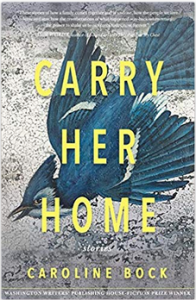 Carry Her Home, Caroline Bock, Washington Writers Publishing House, 2018, 218 pp.
Carry Her Home, Caroline Bock, Washington Writers Publishing House, 2018, 218 pp.
This collection of flash fiction and longer stories, many of which are inter-related, is fully, deliciously unexpected. From the first tiny but densely meaningful story, “The Understanding”, and the second, “O, Tomato,” which reads like prose poetry, it doesn’t take long to catch the rhythm of the stories and a sense of direction, and to realize that what remains unstated carries as much weight as what is on the page.
A Book for Now: Behold the Dreamers by Imbolo Mbue
 Imbolo Mbue’s novel Behold the Dreamers has been on my mind as I’ve read about the thousands of migrants from Central America walking the long miles toward the United States. The fictional story about Jenda Jonga, an immigrant from Cameroon, could be the story of so many people who see America as the promised land. One of America’s central myths is that of the poor immigrant who amasses riches. Mbue’s take on it is powerful and original.
Imbolo Mbue’s novel Behold the Dreamers has been on my mind as I’ve read about the thousands of migrants from Central America walking the long miles toward the United States. The fictional story about Jenda Jonga, an immigrant from Cameroon, could be the story of so many people who see America as the promised land. One of America’s central myths is that of the poor immigrant who amasses riches. Mbue’s take on it is powerful and original.
Mbue herself is the embodiment of the immigrant success story. In 1998, an aunt sponsored her to come from her native Cameroon to study at Rutgers University. She went on to get a master’s degree from Columbia University. Behold the Dreamers, her debut novel, landed a million-dollar advance.
Book Review: Waiting for Eden
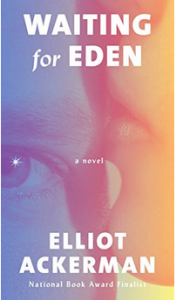 Within the first few sentences of Waiting for Eden, readers realize they are in for something out of the ordinary when the first-person narrator says matter-of-factly, “I was sitting next to Eden and luckier than him when our Humvee hit a pressure plate, killing me and everybody else, him barely surviving.”
Within the first few sentences of Waiting for Eden, readers realize they are in for something out of the ordinary when the first-person narrator says matter-of-factly, “I was sitting next to Eden and luckier than him when our Humvee hit a pressure plate, killing me and everybody else, him barely surviving.”
But out-of-the-ordinary has become the rule for the novels of Elliot Ackerman, author of the critically acclaimed debut Green on Blue, National Book Award finalist Dark at the Crossing, and now his latest, Eden, being released on September 25.
As a journalist, Ackerman was based for a number of years in Istanbul, starting in 2013, where he covered the Syrian Civil War. Among other publications, his writing has appeared in The New Yorker, The Atlantic, The New Republic, and The New York Times Magazine, and his stories have been included in The Best American Short Stories.
Moving Beyond Auto-fiction to the Epic: Three Novel Recommendations
The English publication of the volumes of Karl Ove Knausgard’s My Struggle coincides with a renewed interest in “auto-fiction,” also known as the autobiographical novel. While I have read and enjoyed several of these works of auto-fiction, my favorite is Elena Ferrante’s Neapolitan Novels, which seemed to draw on some auto-fiction elements, but also used other literary devices such as image patterning and developing character arcs, while incorporating motifs of class, politics, art, motherhood, friendship, and feminism.
Since finishing the Neapolitan series I’ve found myself wanting to read more novels that span generations, placing themselves in historical context, in which history itself (just as Ferrante’s working class post-war Italy) becomes a character. Three recent novels fit this bill, and I recommend them to anyone desiring epic historical novels that educate as well as entertain.
A Book That’s Music to the Ears
 The book group I facilitate at a senior center was humming with excitement at our recent meeting. Our book was The Music Shop by Rachel Joyce, and all ten readers loved it.
The book group I facilitate at a senior center was humming with excitement at our recent meeting. Our book was The Music Shop by Rachel Joyce, and all ten readers loved it.
We’ve had plenty of lively meetings at which some members expound, politely of course, on why a book isn’t at all good and others on why it’s stunningly beautiful. The only dissension this time was over which character was the most interesting, which scene the most beautiful, or which description of music the most memorable. There were many to choose from.
In every chapter Joyce names at least one composer, composition, singer, or songwriter. I counted about 80 total in the book, ranging from Pérotin’s Beata Viscera of the 13th century to Michael Jackson’s Bad of 1987, the year before most of the book’s action takes place.
It’ll Soon be Time to Enjoy HARD CIDER
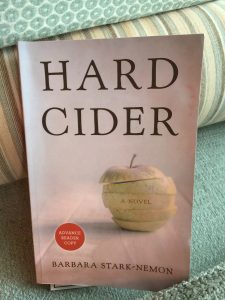 I’ve often written about my admiration of and appreciation for small, independent book publishers, those folks who are in the business much more because of their love of books than their pursuit of the next big blockbuster. Publishing these days has an ever-slimming profit margin amid fierce competition, and that makes things even more challenging for those who do this for love.
I’ve often written about my admiration of and appreciation for small, independent book publishers, those folks who are in the business much more because of their love of books than their pursuit of the next big blockbuster. Publishing these days has an ever-slimming profit margin amid fierce competition, and that makes things even more challenging for those who do this for love.
A small publisher that has drawn positive attention for its business model and a gratifying level of success is She Writes Press. In 2016, books from She Writes Press were awarded seventeen medals at the Independent Publisher Book Awards, the most awards to one press in that year. Under the guiding hand of publisher Brooke Warner, the press has gone from a catalog of eight titles in 2013 to an impressively long list for both spring and fall in this, their six year.
Ali Smith’s Stunning Seasonal Quartet
 Ali Smith—Scottish, 55, fearless—has already made a reputation as one of most ambitious, offbeat, and mesmerizing novelists of our time. Now she’s pushing it a step further with an unusual “seasonal” quartet. The first two volumes, Autumn and Winter, are already out, and you better hurry up and read them because you want to be ready when Spring arrives. And it won’t be long.
Ali Smith—Scottish, 55, fearless—has already made a reputation as one of most ambitious, offbeat, and mesmerizing novelists of our time. Now she’s pushing it a step further with an unusual “seasonal” quartet. The first two volumes, Autumn and Winter, are already out, and you better hurry up and read them because you want to be ready when Spring arrives. And it won’t be long.
The novels are being rushed out, but Smith has her reasons. She wants to put her mark on current events. Most writers of contemporary fiction struggle with an age-old dilemma: Is it better to be timely or timeless? Smith is one of the few with the talent to be both.
Autumn was published in 2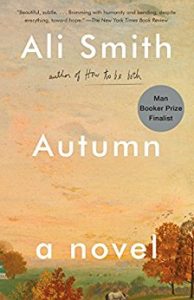 017, barely eleven months after the Brexit vote, and it serves partially as a novel of protest over what Smith clearly believes was a misguided decision by Britain to leave the European Union.
017, barely eleven months after the Brexit vote, and it serves partially as a novel of protest over what Smith clearly believes was a misguided decision by Britain to leave the European Union.
Thinking of Ireland and Edna O’Brien
 In May, as Ireland voted to end its ban on abortion, I thought back to the Ireland of my youth and to Edna O’Brien, the Irish-born novelist whose vivid and unself-conscious description of sexuality shocked her native land.
In May, as Ireland voted to end its ban on abortion, I thought back to the Ireland of my youth and to Edna O’Brien, the Irish-born novelist whose vivid and unself-conscious description of sexuality shocked her native land.
When I was twenty-one, I traveled from New York to Europe with a college friend. The last week of the trip was the most exciting and the most terrifying for her. We were to visit her extended family in Ireland and meet her boyfriend from home, who was on vacation with his family. She worried that the garda, the Irish police, would somehow find the birth control pills she’d hidden in her purse, or the hotel wardens would catch her and her boyfriend sharing a bed.
Little Town, Big Exposure: A Visit to the 9th Annual Gaithersburg Book Festival
Bad Weather Doesn’t Stop Book Lovers
In the opening hours of the Ninth Annual Gaithersburg Book Festival, the skies were an ugly steel gray and the precipitation shifted across mist, sprinkle, drizzle, and steady rain — and still the book lovers came out in force. Sporting umbrellas and rain ponchos, they were ready to hear their favorite authors read from and discuss books at the different literary tents, browse the new and used bookstores and independent booksellers, get their books signed while chatting with those favorite authors, grab something tasty from the food vendors, and go back again for more.
Of the many book festivals that the Baltimore-Washington area now enjoys, Gaithersburg is my personal favorite. Though it often draws over twenty thousand attendees and attracts many nationally known authors, it still has a very intimate feeling.
Interview With Author Frank E. Hopkins
 And the winner is… Abandoned Homes: Vietnam Revenge Murders by Frank E. Hopkins was recently named best book of the year in the mystery/thriller genre by the Maryland Writers’ Association. It’s a tale of murder discovered thirty-five years after the crime, and the novel allows Hopkins to reach back to the Vietnam War era to explore the anger and division that tore America apart. Frank, who is also the author of two other novels—Unplanned Choices and The Opportunity—was kind enough to talk with us about his work.
And the winner is… Abandoned Homes: Vietnam Revenge Murders by Frank E. Hopkins was recently named best book of the year in the mystery/thriller genre by the Maryland Writers’ Association. It’s a tale of murder discovered thirty-five years after the crime, and the novel allows Hopkins to reach back to the Vietnam War era to explore the anger and division that tore America apart. Frank, who is also the author of two other novels—Unplanned Choices and The Opportunity—was kind enough to talk with us about his work.
Frank, I’d like to start with a question I sometimes ask myself. You and I both started writing seriously – or at least started publishing – after we retired. Do you have any regrets that you didn’t begin much earlier?
Short Story Collection: Don’t Wait to Be Called
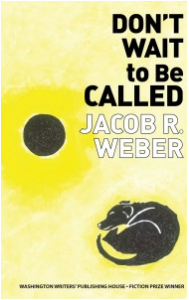 At the Washington Writers Conference coming up in May, I’ll be moderating a panel with four local authors whose debut books made it to publication through very different paths. Each book is also a different genre — memoir/journalism, biography, novel, and short story collection — which means I’m reading four very different books to prepare for the panel.
At the Washington Writers Conference coming up in May, I’ll be moderating a panel with four local authors whose debut books made it to publication through very different paths. Each book is also a different genre — memoir/journalism, biography, novel, and short story collection — which means I’m reading four very different books to prepare for the panel.
The short story collection, Don’t Wait to Be Called, is by Jacob R. Weber. Publication resulted from Weber’s winning the annual fiction prize given by Washington Writers’ Publishing House, a non-profit small press that publishes authors from the Baltimore/Washington area. Weber’s roots, which are on display in his stories, hedge towards the Baltimore end of that geography.
Weber’s biography reads like someone who has lived a few different lives, as a Marine, a translator, and an English tutor to adult immigrants, as well as a waiter and a retail clerk and manager.
Elderly Sleuths Kill Stereotypes
I’m reading mysteries featuring elderly sleuths, and I’m looking for descriptions that allow the elderly to be whole, able, and alert. No other will do. My own cozy mystery series features the 90-year-olds at Whisperwood Retirement Village, and my characters are able, alert, and active as are many 90-year-olds and 100-year-olds.
As the critique group of my first manuscript read and commented on it, I was appalled at what they said. They wanted me to present the elderly, or rather, the perennials, using all the stereotypes of the elderly, when I am pulling for a better reality. Have you seen 90-year-old Dick Van Dyke dancing with his wife on YouTube?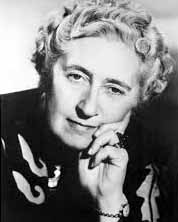
So I began collecting articles about people in their 90s and 100s who are running marathons, winning tennis matches and canoeing races, even learning how to read for the first time.
Character Traits and Personality Types
11/17/2017 Character Traits and Personality Types
In my 90s Club series, the 90-year-olds sometimes use stereotypes of the elderly to mislead their quarries into thinking they are harmless. My characters are able, alert, and active—as many 90-year-old and 100-year-olds are nowadays. In my writers’ critique group, I was appalled to hear my fellow writers push for the stereotypes as more “believable.” Most of us today avoid and dismiss the stereotypes of African-American, gay, Italian, Greek, Scandinavian, blonde, etc., I hope we’ve all gone beyond the use of eyeglasses to show an intellectual, studious, or nerdy person, a person who when she or he whips off the glasses, suddenly becomes sexy or strong. Think Superman. It still happens in the movies and television, though, where the elderly continue to be the victims of demeaning and sometimes vicious stereotypes.
